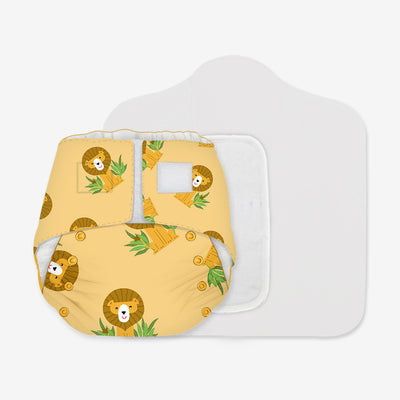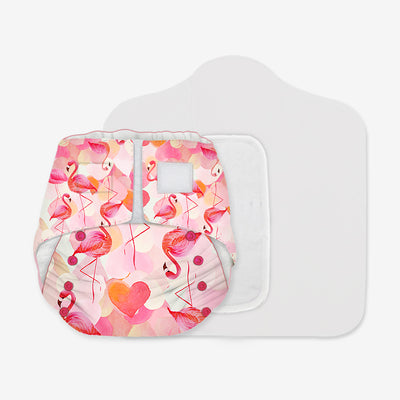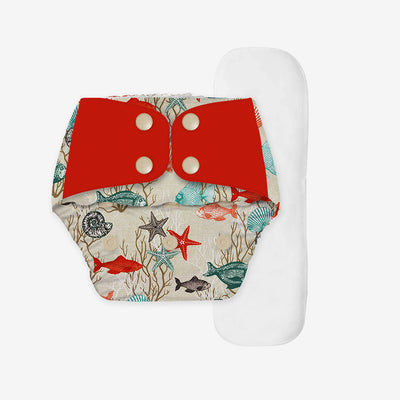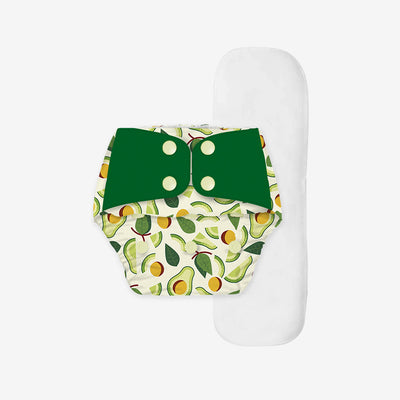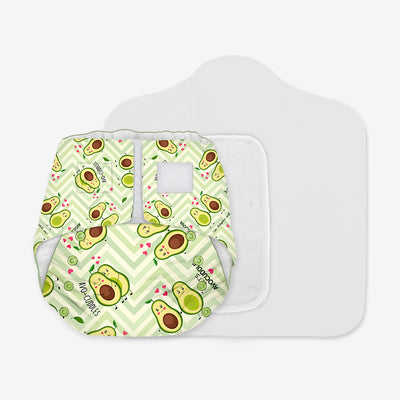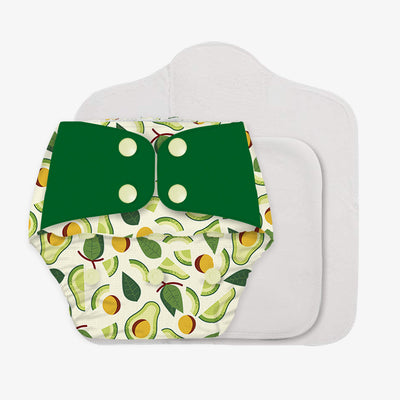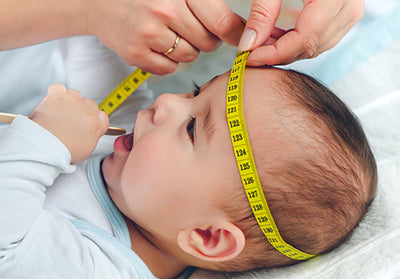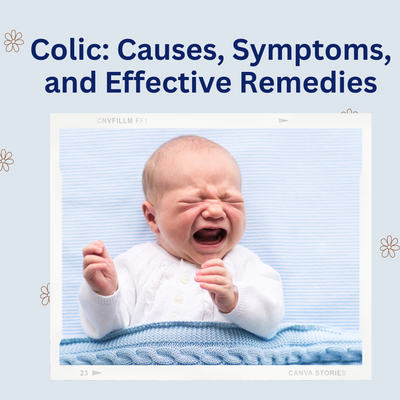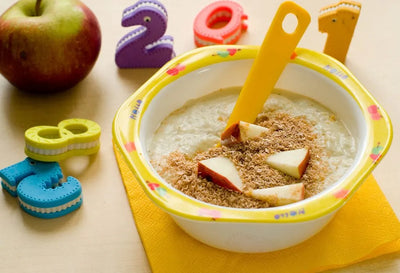All About Teething Symptoms, Problems & Signs in Babies

As a parent, one of the most exciting milestones you'll witness is your baby's first tooth poking through their gums. However, the teething process can also bring along a fair share of challenges. From sleepless nights to crankiness and drooling, it's important to understand the symptoms, problems, and signs of teething so you can provide the necessary care and support for your little one. In this comprehensive guide, we will delve into all things teething, offering you valuable insights and practical tips to navigate this important stage of your baby's development. We'll explore common teething symptoms such as swollen gums and irritability, discuss potential problems like fever and diarrhea, and reveal the telltale signs that indicate your baby is teething. So, whether you're a first-time parent or have already experienced this process with older children, join us as we uncover the world of teething and equip you with the knowledge to ensure your baby's comfort and well-being during this exciting time.
What is teething?
Teething is the process when a baby's teeth start to emerge through their gums. It typically begins around 6 months of age, although some babies may start teething as early as 3 months or as late as 12 months. The initial teeth that typically emerge are usually the pair of lower front teeth, succeeded by the pair of upper front teeth. Over time, the rest of the baby's teeth will gradually appear, until they have a full set of 20 primary teeth.
Teething occurs as a natural part of a baby's development and is a sign that their jaw and facial bones are growing. The process can be uncomfortable for babies and may cause them to experience a range of symptoms. Understanding these symptoms can help parents provide the necessary care and support during this stage.
When do babies start teething?
The timing of when babies start teething can vary. While the average age is around 6 months, it's important to remember that every child is different, and some may start teething earlier or later. Some babies may even be born with a tooth or two, although this is relatively rare.
As a general guideline, you can expect the first tooth to emerge between 4 to 7 months of age. However, it's not uncommon for some babies to start teething as early as 3 months, while others may not have any teeth until they're 12 months or older. If your baby hasn't started teething by their first birthday, it's a good idea to consult with their pediatrician to ensure there are no underlying issues.
Common teething symptoms in babies
Teething can bring about a range of symptoms that can vary from baby to baby. Some babies may experience only mild discomfort, while others may have more pronounced symptoms. Here are some common teething symptoms to look out for:
- Swollen and tender gums: One of the most noticeable signs of teething is swollen and tender gums. You may notice that your baby's gums appear red, puffy, and sometimes even bulging. This is a result of the pressure exerted by the emerging tooth on the gums.
- Drooling: Excessive drooling is another common teething symptom. Your baby may produce more saliva than usual, leading to constant drooling. This can cause a rash or irritation around the mouth and chin area. It's important to keep the area clean and dry to prevent any skin issues.
- Iritability and fussiness: Teething can make babies feel uncomfortable and irritable. They may become more fussy and cry more frequently than usual. This can be attributed to the discomfort and pain caused by the emerging tooth.
- Biting and chewing: Babies may instinctively start biting and chewing on objects to relieve the pressure on their gums. You may notice them gnawing on their fingers, toys, or even your fingers. Providing safe teething toys can help satisfy their chewing instincts while providing relief.
- Changes in appetite: Some babies may go through a temporary decrease in appetite while teething, resulting in changes in their eating habits. The discomfort in their gums may make it uncomfortable for them to eat, leading to fussiness during feeding times. It's important to offer soft foods and ensure they stay hydrated during this period.
- Sleep disturbances: Teething can disrupt your baby's sleep routine. They may have trouble falling asleep or wake up more frequently during the night due to the discomfort. Providing soothing techniques and a calming bedtime routine can help promote better sleep.
Remember, not all babies will experience every symptom, and the severity can vary. If you notice any unusual or persistent symptoms, it's always best to consult with your pediatrician to rule out any other underlying issues.
Signs of teething problems
While most teething symptoms are considered normal, there are certain signs that may indicate a more serious problem. It's important to be aware of these signs and seek medical attention if necessary. Here are some signs of teething problems to watch out for:
- Fever: A low-grade fever (below 101°F or 38.3°C) is sometimes associated with teething. However, if your baby has a high fever or a fever above 101°F (38.3°C), it's important to consult with a healthcare professional. Fever can be a sign of an unrelated illness or infection, and it's important to rule out any other underlying causes.
- Diarrhea: While some babies may experience changes in their bowel movements during teething, such as loose stools, severe or persistent diarrhea is not typically associated with teething. If your baby has diarrhea that lasts for more than a few days or is accompanied by other concerning symptoms, consult with your pediatrician.
- Excessive crying and distress: While it's normal for babies to be fussy during teething, excessive crying and distress that cannot be comforted may indicate a problem. If your baby seems inconsolable or displays signs of extreme pain, it's important to seek medical attention to rule out any other issues.
- Unusual swelling or redness: While swollen gums are common during teething, excessive swelling or redness that seems severe or unusual may indicate an infection or other dental issue. If you notice any concerning changes in your baby's gums or teeth, it's best to consult with a pediatric dentist.
It is crucial to have confidence in your parental instincts.If you have any concerns about your baby's teething symptoms or suspect something may be wrong, it's always best to seek professional advice.
How to soothe teething pain in babies
Seeing your baby in discomfort can be difficult, but there are several things you can do to help soothe their teething pain. Here are some effective strategies to provide relief to your little one:
- Gentle gum massage: Gently massaging your baby's gums with a clean finger can help alleviate some of the discomfort. Simply wash your hands and use a clean finger to apply gentle pressure on the gums. This can provide temporary relief and help distract your baby from the teething pain.
- Cool teething toys: Cold can provide numbing relief to sore gums. Give your baby a teething toy that has been chilled in the refrigerator (not frozen) to help soothe their gums. The cool temperature can help reduce inflammation and provide comfort. Always ensure the teething toy is safe and appropriate for your baby's age.
- Cold washcloth: Another simple and effective remedy is to wet a clean washcloth and place it in the refrigerator for a few minutes. Once chilled, give it to your baby to chew on. The texture and coolness of the washcloth can provide relief and help numb the gums.
- Teething rings: Teething rings are specially designed to provide relief to teething babies. They are typically made of safe materials and can be chilled in the refrigerator. The firmness and texture of the teething ring can help massage the gums and provide a satisfying chewing experience.
- Over-the-counter teething gels or medications: There are over-the-counter teething gels and medications available that can help numb the gums and provide temporary relief. However, it's important to consult with your pediatrician before using any medication or gel to ensure it is safe for your baby and used as directed.
Remember to always supervise your baby when using teething toys or other remedies to ensure their safety. Additionally, it's important to choose products that are specifically designed for teething babies and meet safety standards.
Teething remedies to try at home
In addition to the strategies mentioned above, there are several other home remedies that can help alleviate teething discomfort. These remedies are safe, natural, and can provide additional relief to your baby.
- Chamomile tea: Chamomile tea has natural soothing properties and can help reduce inflammation and pain. Brew a weak cup of chamomile tea, let it cool, and then apply it to your baby's gums using a clean finger or a soft cloth. The chamomile can provide a calming effect and help soothe teething discomfort.
- Cold fruit or vegetable purees: If your baby has started solid foods, you can offer them cold fruit or vegetable purees. The cool temperature can provide relief to their gums while also offering nourishment. Opt for soft fruits like frozen bananas or chilled applesauce. Always ensure the purees are age-appropriate and do not present a choking hazard.
- Breast milk popsicles: If you're breastfeeding, you can make breast milk popsicles by pouring expressed breast milk into popsicle molds and freezing them. These frozen breast milk popsicles can provide a comforting and cooling sensation to your baby's gums.
- Natural teething biscuits: There are natural teething biscuits available in the market that are specifically designed for teething babies. These biscuits are typically made from safe, organic ingredients and can provide a satisfying chewing experience while massaging the gums.
- Distraction and cuddles: Sometimes, the best remedy for teething discomfort is simply providing extra love and attention. Distract your baby with their favorite toys, engage in playtime, or offer extra cuddles and comfort. The warmth and security you provide can help alleviate their discomfort and make them feel better.
Keep in mind that each baby is unique, and what may be effective for one might not be the same for another. It may take some trial and error to find the remedies that provide the most relief for your baby. Trust your instincts as a parent and adapt the remedies based on your baby's preferences and comfort.
Teething toys and products for babies
Teething toys and products can provide much-needed relief to your baby's teething pain. There are various options available in the market, each with its own benefits. Here are some popular teething toys and products to consider:
- Silicone teething rings: Silicone teething rings are a popular choice for teething babies. They are soft, flexible, and easy for babies to hold. Silicone is a safe material that can be chilled to provide soothing relief to sore gums. Look for teething rings that are free from harmful chemicals and meet safety standards.
- Teething mittens: Teething mittens are worn on your baby's hand like a glove and have a textured surface for chewing. They can help protect your baby's hands from excessive chewing and provide comfort at the same time. Teething mittens are especially useful for babies who have not yet developed the coordination to hold teething toys.
- Teething necklaces: Teething necklaces are designed to be worn by the parent or caregiver, not the baby. They are made of safe materials like silicone or wood and have beads or pendants that the baby can chew on while being held or carried. Teething necklaces can provide a convenient and safe option for babies who enjoy being close to their caregiver.
- Freezable teething toys: Some teething toys are designed to be frozen, providing a cool and numbing sensation to the gums. These toys often have water-filled sections that can be placed in the freezer. As the baby chews on the toy, the cold temperature helps relieve teething discomfort.
- Natural rubber teething toys: Natural rubber teething toys are made from natural materials and are free from toxic chemicals. They are often soft and chewy, providing a satisfying texture for babies to gnaw on. Natural rubber teething toys are a safe and eco-friendly option.
When choosing teething toys and products, always consider the safety and age-appropriateness. Look for toys that are free from harmful chemicals, easy to clean, and meet safety standards. Regularly inspect the toys for any signs of wear and tear and discard them if they become damaged.
Teething myths and misconceptions
Teething is surrounded by various myths and misconceptions that have been passed down through generations. It's important to separate fact from fiction to ensure you provide the best care for your teething baby. Here are some common teething myths debunked:
- Teething causes fever: While some babies may experience a low-grade fever during teething, teething itself does not cause a high fever. If your baby has a high fever, it's important to consult with a healthcare professional to rule out any other issues.
- Teething causes diarrhea: Teething can sometimes lead to changes in bowel movements, such as loose stools. However, severe or persistent diarrhea is not typically associated with teething. If your baby has prolonged diarrhea, it's best to consult with your pediatrician.
- Teething delays sleep or causes sleeping problems: Teething can disrupt your baby's sleep routine, but it does not cause long-term sleep problems or delay sleep milestones. Most sleep disturbances during teething are temporary and improve as the tooth erupts and discomfort subsides.
- All teething symptoms are severe: While some babies may experience more pronounced teething symptoms, not all babies will exhibit severe symptoms. Some babies may go through teething with minimal discomfort.
- Every baby gets teeth at the same time: The timing of teething can vary from baby to baby. While the average age is around 6 months, some babies may start teething earlier or later. Every child is unique, and their teething timeline may not align with others.
It's important to rely on trusted sources, such as pediatricians and reputable medical websites, for accurate information about teething. If you have any concerns or questions, don't hesitate to reach out to your healthcare provider.


